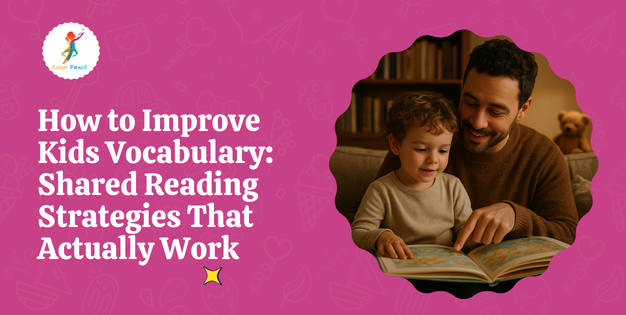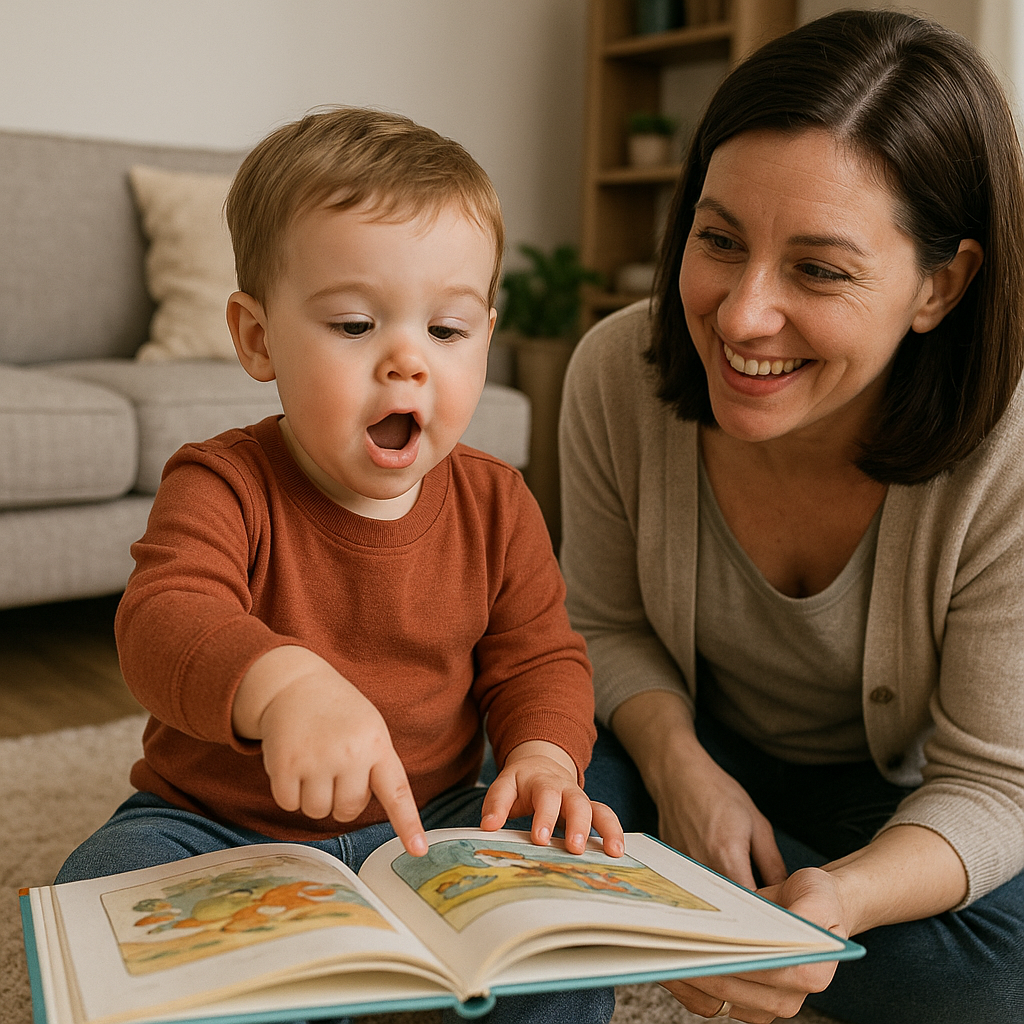
Top 10 Flashcard Combos for Holistic Toddler Learning
Did you know that up to 80% of a toddler’s brain develops in the first five years? As a parent, you’re likely eager to give

Want to know how to improve kids vocabulary without expensive programs or apps? One of the most effective tools is something you might already be doing: reading together.
New research shows that shared reading—reading books with your child, not just to them—can significantly boost language skills and early literacy. But how does it actually work? And how can parents make the most of this simple yet powerful habit?
Let’s explore the science behind it and the small changes that can lead to big vocabulary wins.

Shared reading goes beyond storytime. It involves asking questions, pointing to pictures, explaining new words, and encouraging your child to talk about what they see.
This interactive approach is proven to:
In fact, researchers have found that children exposed to active shared reading can learn 1.5 times more vocabulary words than kids who listen passively.
Here are 5 shared reading strategies that actually make a difference:
Don’t rush through the pages. Pause to ask open-ended questions like, “What do you think will happen next?” or “Why is the dog hiding?”
When a new word appears, say it more than once. Use it in different sentences or point it out in your environment later.
Pairing this with interactive vocabulary games adds an extra layer of excitement to learning. Explore the best Play Pixo games to boost your child’s vocabulary while they have fun.
Help your child relate the book to their own experiences: “Remember when we saw a firetruck like that at the park?”

Encourage your child to point at pictures, finish sentences, or pretend to read aloud. This builds early literacy confidence.
Shared reading is a great way to build vocabulary, but educational apps can also play a powerful role in expanding your child’s language skills. Learn how educational apps help build vocabulary and provide an interactive supplement to your reading sessions.
Children love repetition—and repeated exposure to vocabulary words for kids strengthens memory and understanding.

Shared reading isn’t limited to books! Educational videos that encourage conversation and recognition can also support vocabulary growth.
🎥 Title: Learn Opposites for Kids | Fun with Pixo | Color Pencil TV
Join Pixo the character in this playful video where kids learn about opposites like big/small, fast/slow—all while engaging with colorful visuals and music that prompt real-world connections.
Pair this with a book about opposites for a double learning boost!
Follow your child’s lead during reading time.
Let them pick the book—even if it’s the same one every night. The more invested they feel, the more open they are to learning. Their favorite story might be the perfect vessel for introducing new vocabulary words for kids.

Feeling Overwhelmed? Let’s Talk! Join Our Parent Forum and Get Expert Advice & Support!
Aim for at least 15–20 minutes a day. Consistency matters more than quantity.
Books with repetition, rhyming, and rich vocabulary are ideal. Picture books and interactive stories work especially well.
Shared reading allows for discussion, clarification of new words, and emotional bonding—all key to deeper learning.
Yes—if they’re interactive or watched with a caregiver who asks questions and talks about the content.
Try reading during quieter moments (like after a bath), use short books, or let them move while you read aloud.